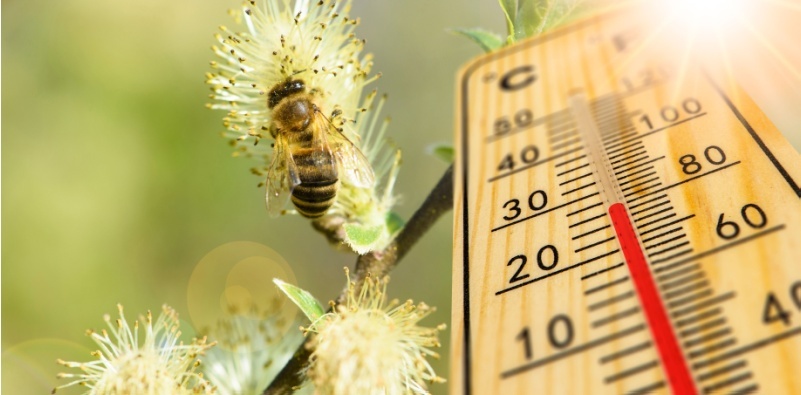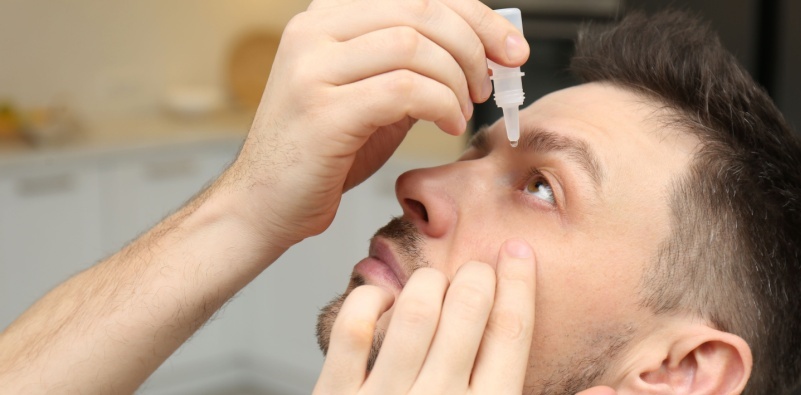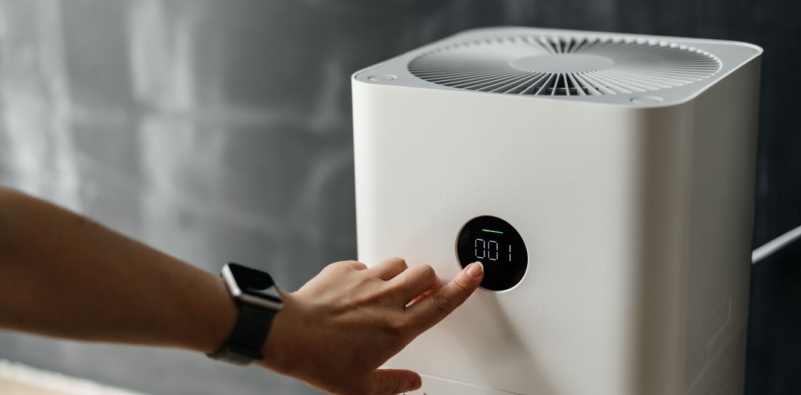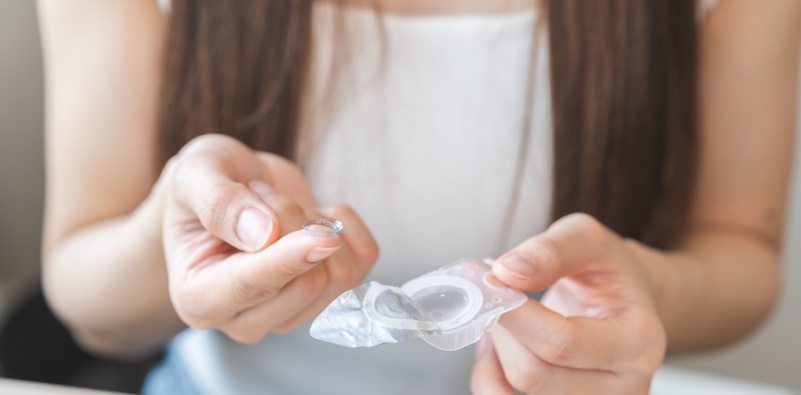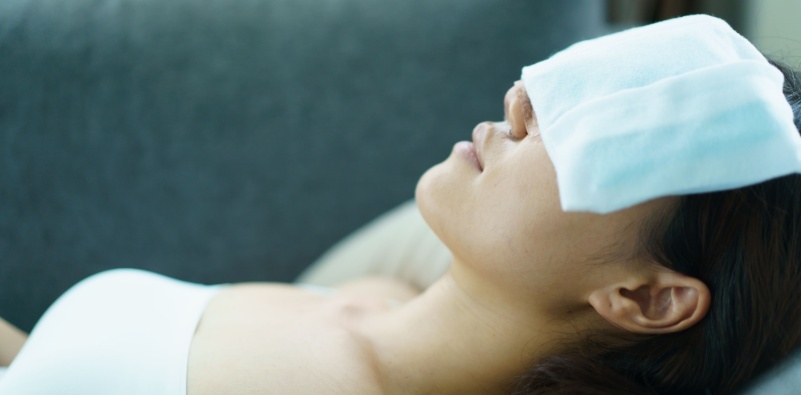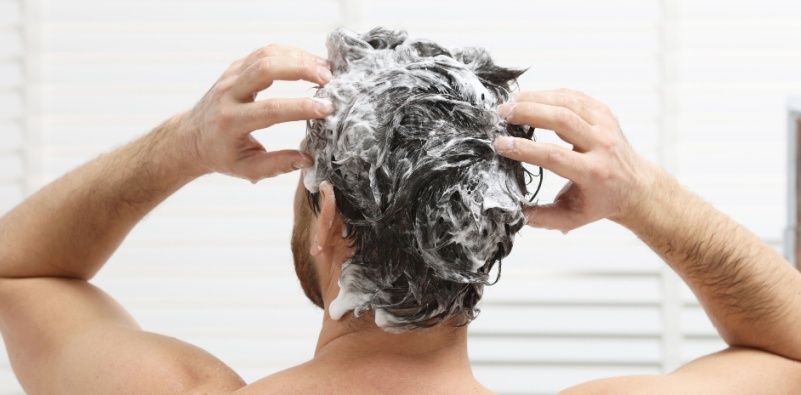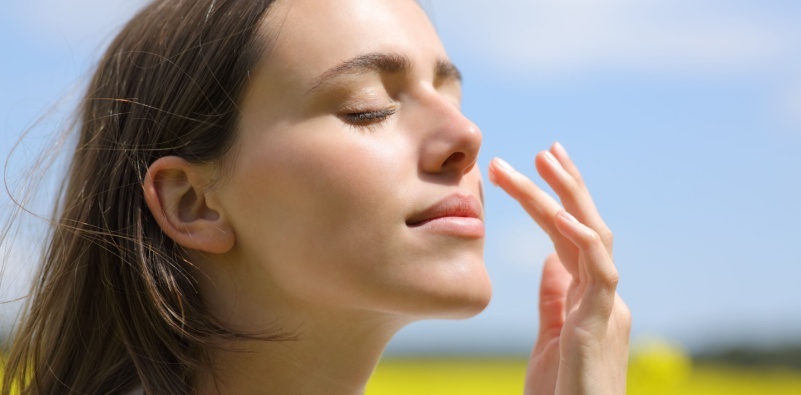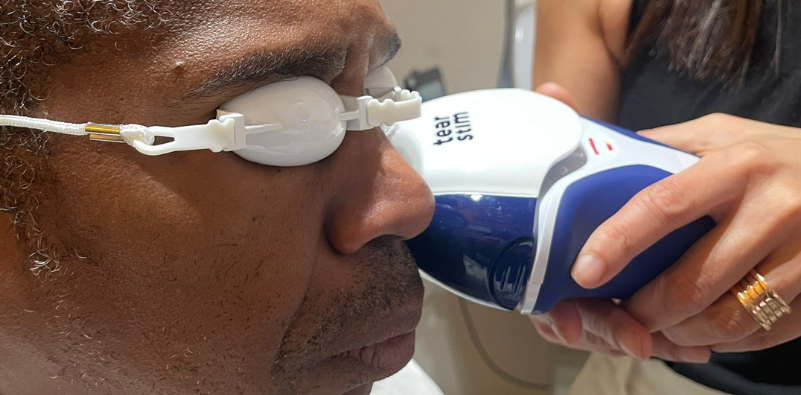Hay fever: 7 tips for symptom relief
Summer in the UK means more sunshine, longer evenings, and nature in full bloom – a welcome change after months of grey skies. But, for many, it also means the return of hay fever. Pollen levels rise and with them, come itchy, watery eyes and general discomfort that can put a dampener on outdoor plans.
So, how can you keep your eyes protected and reduce irritation when allergy season hits? We’ll share 7 practical tips to help you manage symptoms and enjoy the season with clearer, more comfortable vision.
How do seasonal allergies affect your eyes?
Hay fever, or seasonal allergic rhinitis, is your body’s response to airborne allergens, most commonly grass pollen in summer. Other triggers can include dust mites and pet dander, which are present year-round but often feel worse when combined with pollen.
When your immune system detects these allergens, it reacts by releasing histamines. This natural chemical causes inflammation and leads to symptoms like red, itchy, swollen eyes and excessive watering, known as allergic conjunctivitis.
Outdoor activities such as gardening, walking, or playing sports can exacerbate your body’s reaction, especially on breezy days when pollen levels are higher. Being aware of what affects your eyes is the first step toward managing discomfort, finding suitable hay fever treatment, and staying comfortable throughout the season.
How to shield your eyes from pollen
One easy way to protect your eyes is to block the pollen from getting to them. By wearing either prescription glasses or sunglasses while you’re out and about, you can create a barrier that will help stop pollen from entering your eyes and causing irritation.
Wraparound sunglasses are most effective as they sit closer to your face and, as the name suggests, wrap around the sides of your eyes, too, reducing the chance for pollen to reach your eyes.
Have you checked the pollen index?
Just like checking the weather, it’s a good habit for hay fever sufferers to check the daily pollen forecast. Local pollen levels are easy to find online and can help you plan your day accordingly.
On the days when pollen counts are high, consider limiting time outdoors or scheduling activities for early morning or late evening, when levels tend to be lower. Staying informed allows you to take simple steps to reduce eye irritation and help you enjoy summer with fewer disruptions.
What are the best eye drops for hay fever?
Eye drops are a simple and effective way to relieve allergy-related eye discomfort. They quell the inflammation caused by allergens like pollen, pet dander, and dust mites, helping to soothe symptoms such as itching, redness, and watering.
There are several types of eye drops for hay fever available. Antihistamine drops can reduce inflammation after an allergic reaction, offering quick relief from irritation. Artificial tears can help flush out allergens from the eye’s surface while keeping it hydrated. For more persistent symptoms, we may recommend mast cell stabiliser drops, which help prevent future reactions when used regularly by blocking histamine release.
Our team will be happy to discuss the options with you and help you decide on the best type to suit your needs. Not everyone will benefit from the same eye drops as another individual might, depending on factors like eye sensitivity and whether you wear contact lenses or not.
Create a hay fever-friendly indoor environment
When pollen counts are high, staying indoors can offer a welcome break from allergy effects, but only if your indoor air is clean and low in allergens. Improving air quality at home can make a big difference in managing eye discomfort and other allergic reactions.
Start by keeping windows and doors closed where possible, especially on days when pollen is most active. An air purifier with a HEPA filter can help trap airborne particles like pollen, dust mites, and pet dander. Regularly wiping down surfaces and vacuuming with a filter-equipped vacuum cleaner also helps reduce allergen build-up.
These simple steps can turn your home into a comfortable retreat, giving your eyes time to recover and keeping flare-ups at bay.
How can you prevent hay fever symptoms as a contact lens wearer?
If you wear contact lenses, hay fever may aggravate your eyes even more. Pollen and other allergens can cling to lenses, especially if worn for extended periods. That’s why we emphasise good lens hygiene, especially at this time of year.
Switching to daily disposable contact lenses is a great option if our optometrists recommend it, as it reduces the chance of allergen build-up – each day starts with a fresh, clean pair. If you use reusable lenses, make sure you’re cleaning and storing them properly with clean, dry hands to keep them free from irritants. For more helpful advice on caring for your lenses, you can take a look at our dedicated contact lens care guide.
Keeping your lenses clean and your routine consistent can go a long way toward easing allergy-related eye symptoms.
Soothe irritated eyes with a cold compress
A cold compress can offer quick, calming relief when allergies leave your eyes feeling itchy, puffy, or sore. Simply soak a clean cloth in cold water, wring it out, and place it gently over your closed eyes for a few minutes.
The cool temperature helps reduce swelling and soothes the area around your eyes after spending time outdoors. Keep a soft cloth in the fridge on a clean surface so it’s ready whenever you need a bit of extra relief.
Rinse away pollen after being outdoors
Pollen can easily stick to your skin, hair, and clothing while you’re outside. Once you’re back indoors, taking a quick shower and changing into clean clothes can help remove any lingering allergens and prevent them from spreading around your home or transferring to your eyes.
This small step can significantly reduce allergic responses, particularly if you’ve been gardening, exercising, or spending time in grassy areas.
Hay fever and dry eyes: what’s the link?
Seasonal allergies don’t just cause itching and watering; they can also make dry eye feel worse. Exposure to irritants like pollen can lead to greater discomfort when your eyes are already sensitive.
Do you need dry eye or hay fever treatment?
At Optikal Opticians in Potters Bar, Finchley, and Temple Fortune, we offer advanced treatments to help relieve dry eye syndrome, which may be triggered by hay fever. These include innovative solutions for long-term relief like Activa and TearStim.
If your eyes are persistently dry or irritated or you’re looking for hay fever treatment, we’re here to help. Get in touch with our friendly team at any of our North London locations to discuss your symptoms and options so you can enjoy every sunny moment with more comfort.



